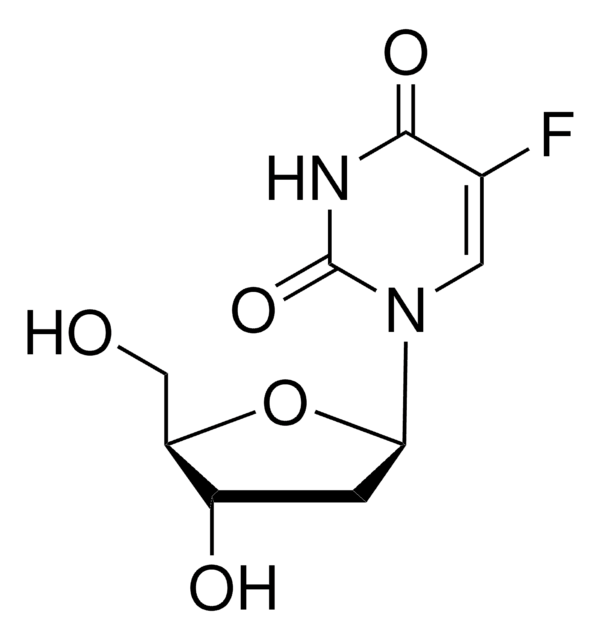F3542
Fibronectin Fragment III1-C human
recombinant, expressed in E. coli, lyophilized powder
Synonym(s):
FF III1-C
About This Item
Recommended Products
biological source
human
Quality Level
recombinant
expressed in E. coli
form
lyophilized powder
quality
essentially salt free
mol wt
8-15 kDa
packaging
pkg of 0.5 mg
technique(s)
cell culture | mammalian: suitable
surface coverage
0.45 μg/cm2
solubility
Tris-buffered saline: soluble 1.00-1.10 mg/mL, clear, colorless
UniProt accession no.
shipped in
ambient
storage temp.
−20°C
Gene Information
human ... FN1(2335)
General description
Recently a new region, type III1 repeat cloned from human placenta cDNA, was reported to participate in matrix formation. In an experiment employing antibodies for the analysisof fibronectin domains required for matrix assembly, the epitope that inhibited binding and insolubilization of labeled plasma fibronectin by fibroblasts, was identified on the type III1 and type I modules of fibronectin. This suggested a role for type III1 and type I in the mediation of fibronectin assembly. This finding was further supported by the ability of the 14 kDa fragment from the first two type III repeats of fibronectin to inhibit fibronectin matrix assembly.4 Recently recombinant fragment III1-C, modeled after the C-terminal two-thirds of the III1 repeat, was found to bind to fibronectin and induce spontaneous disulfide crosslinking of the fibronectin molecules into multimers, which resemble matrix fibrils
Application
Biochem/physiol Actions
Packaging
Storage Class Code
11 - Combustible Solids
WGK
WGK 3
Flash Point(F)
Not applicable
Flash Point(C)
Not applicable
Personal Protective Equipment
Choose from one of the most recent versions:
Already Own This Product?
Find documentation for the products that you have recently purchased in the Document Library.
Customers Also Viewed
Articles
Fibronectin (FN) is a multifunctional, extracellular plasma glycoprotein produced by hepatocytes that circulates at near micromolar concentration and assembles into extracellular matrix fibrils at cell surfaces along with locally produced cellular FN.
Cancer stem cell media, spheroid plates and cancer stem cell markers to culture and characterize CSC populations.
Extracellular matrix proteins such as laminin, collagen, and fibronectin can be used as cell attachment substrates in cell culture.
Protocols
Dilute fibronectin to the desired concentration. Optimum conditions for attachment are dependent on cell type and application. The typical coating concentration is 1 – 5 ug/cm2.Fibronectin coating protocol, products, and FAQs at sigmaaldrich.com
Dilute fibronectin to the desired concentration. Optimum conditions for attachment are dependent on cell type and application. The typical coating concentration is 1 – 5 ug/cm2.Fibronectin coating protocol, products, and FAQs.
Our team of scientists has experience in all areas of research including Life Science, Material Science, Chemical Synthesis, Chromatography, Analytical and many others.
Contact Technical Service




